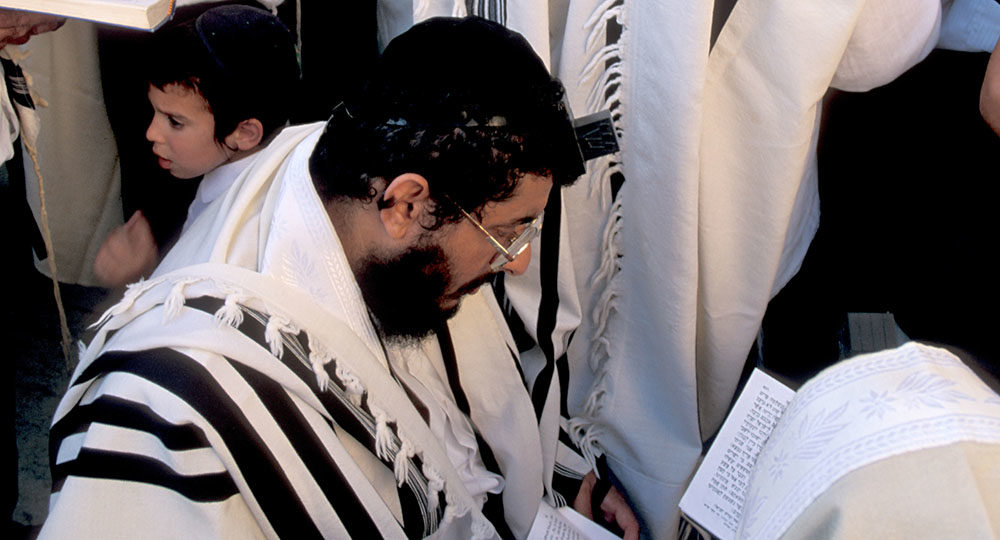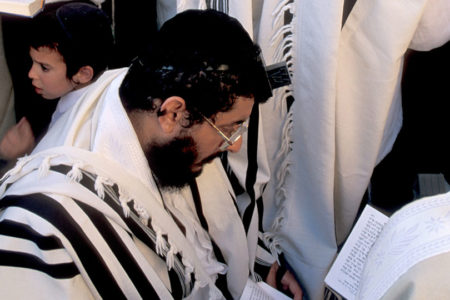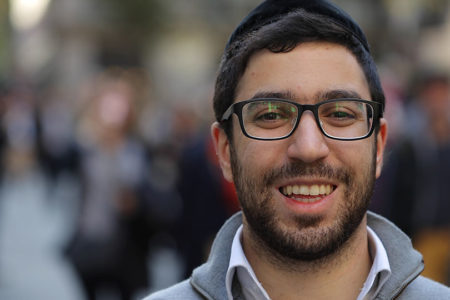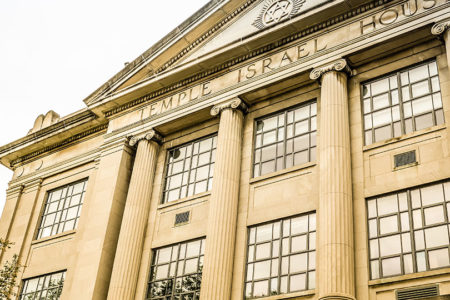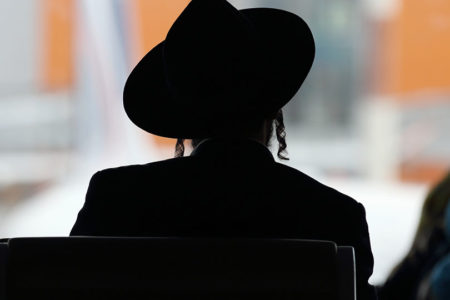Orthodox Judaism In America
Old Ways In The New World
Some Jewish people think that Christianity is confused and splintered. They point out that there are Methodists, Baptists, Presbyterians, Lutherans, Catholics, Pentecostals, and many other divisions. Within those groups there are conservatives, liberals, and others in between. Jewish people sense that Christianity is divided but feel that there is unity within Judaism and emphasize this point strongly.
The truth is, however, that in America today, Judaism is also divided into many camps. There is the Orthodox movement, within which there are several very distinctive groups. In addition, many Jewish people are affiliated with either the Conservative or Reform movements. A great many Jews are secular. They do not hold to the beliefs of their forefathers, nor do they follow typical Jewish traditions. This article will examine one group—Orthodox Judaism in America.
The term Orthodox was first used in 1795 in response to changes that occurred in the Jewish society in Western and Central Europe during the first half of the nineteenth century. It became widely used in the nineteenth century as a contradistinction to the secular leanings of the Reform movement in Judaism. The Orthodox opposed these changes and felt it was their responsibility to be guardians of the Torah and to safeguard their particular and traditional lifestyle.
The Origin of Orthodox Judaism in America
Judaism in America developed from groups that emigrated from two regions of Europe. The Jewish people from Eastern Europe (Poland, Russia, etc.) were Sephardic. Because they had not been emancipated from the traditions and beliefs of the Middle Ages, they remained under a very strict Orthodoxy. Modernization did not come to them until the era following World War I. They lived in tight-knit communities and were bound by age-old rabbinical traditions, strictly following the Orthodox ways of their forefathers.
The Ashkenazi Jews of Western Europe, however, lived in an era of enlightenment. They learned the value of an educational system that taught more than the Tenach (the Old Testament), the Talmud, and the Jewish laws. Because of this, many left their Jewish traditions and became secular. Some Ashkenazi Jews made great achievements in the fields of science, medicine, philosophy, and the arts. Through their discoveries, they did much to enhance the American way of life.
The Basis for Orthodox Judaism
Basic to every segment of Orthodox Judaism is a firm belief in the Bible. While strong emphasis is placed on the Torah (the first five books of the Old Testament), they accept the entire Old Testament as given by God. The Torah is special to the Jewish people because they believe that God gave it directly to Moses. They also hold to the inspiration of the Talmud, which is composed of two parts, the Mishnah and the Gemara. The Mishnah was written by various rabbis as a commentary on the Scriptures. The Gemara was written later and is a commentary on the Mishnah. The Talmud is considered to be equally as authoritative as the Bible.
In connection with their view of the Torah and the Talmud, all Orthodox Jews believe in one God. Based on their interpretation of the Shema, “Hear, O Israel: The Lᴏʀᴅ our God is one Lᴏʀᴅ” (Dt. 6:4), they believe that God is one person and that there is no room for the trinity or for the Messiah to be part of the Godhead. If they believe in a personal Messiah (some do not), they do not believe he will be God but, rather, a superhuman man who will deliver the Jews, make Israel the head of the nations, and bring the world peace promised by their prophets.
The Development of Orthodox Judaism in America
With the arrival of Jewish people in America, the development of their worship followed. Areas with significant Jewish populations in the early days of the United States were Baltimore, Philadelphia, New York City, and Charleston, South Carolina, along with several other eastern cities. They developed their synagogues in the manner of the Ashkenazi Jews of Western Europe. They were run by a board composed of laymen, who hired a cantor to lead in the liturgy, officiate in lifestyle events, teach the children, and do the board’s bidding. There were no rabbis for some time. Hence, the board had to write to their European counterparts for legal interpretations.
Eventually, rabbis emigrated from Europe or were trained in America. Some of them deplored what was happening among the Orthodox Jews. When Rabbi Abraham Rice came to Baltimore, he discovered that the Orthodox congregants generally ignored the law. When he resigned in 1849, he wrote to his former teacher that the character of life in the United States was at the lowest level. The people did not keep kosher, there were public violations of the Sabbath, and thousands of Jews were being assimilated into the non-Jewish population. These were major problems to the Orthodox.
Jewish leaders found Orthodoxy no more monolithic than the non-Orthodox movements. Rabbi Emmanuel Rackman stated, “It is not easy to define Orthodox ideology, belief, and doctrine, for it is as complex and diverse, if not more so, than other sectors of Judaism.” Other Jewish leaders claimed that only a portion of synagogues referred to as Orthodox could truly be identified as Orthodox (that is, religiously observant).
In 1965, Charles Liebman estimated that only 1,607 of the 3,100 Orthodox synagogues in America were truly Orthodox. Among these, he said, there were enormous differences in beliefs and rituals.
While there are nearly six million Jews in America, no more than nine percent claim to be Orthodox. Among them are many who, although they claim to be Orthodox, very seldom worship, nor do they keep the prescribed laws of the Jewish people.
The Dangers Faced by Orthodox Judaism in America Today
There is a growing restlessness and lack of patience on the part of many Orthodox Jews who are dismayed about the slow response of their leadership to new situations, such as the integration of the Jews into American society; the emancipation from the old, close-knit communities; and the establishment of the State of Israel. Many people within the Orthodox movement feel that the leadership has not come to grips with modern society. Instead, each time something new comes up, those in authority merely register their disapproval without trying to apply the teachings of the Torah and the Talmud to the situations. They frown on the secular teachings and practices of this age intruding on the Jewish lifestyle.
Most of the education of Orthodox Jewish students in America has been and is being undertaken by the Orthodox community. They do an excellent job of training children in Jewish law, the Hebrew language, and many general subjects. However, after graduation, a large percentage of these students go out into the secular world, very seldom returning to the faith of their forefathers or even keeping the laws prescribed by their leadership.
Although many Orthodox Jews have turned from the isolation of their leaders and traditional views, no one has been able to form a systematic theology capable of integrating modern science and historic scholarship. The widely recognized Orthodox authority rejects any attempt at compromising the slightest detail of divine revelation. So much emphasis is placed on the various rabbinical interpretations of the law that they are plagued by claims of competing authorities.
Many Jewish people within the Orthodox camp no longer keep the prescribed laws. They are too busy with their daily activities and cannot or will not be bothered with what, to them, seems meaningless in the light of modern society.
Beliefs of Orthodox Judaism
Orthodox Jews believe in their Holy Scriptures (the Old Testament) and hold to its literal interpretation. They believe in one God. Concerning sin, they hold that people are born neutral with a tendency to do good or evil. They believe that people must rectify any wrongs they may have committed against others. Very little emphasis is placed on personal salvation, while prayers and good deeds are strongly encouraged. They believe that the Messiah will one day deliver the land of Israel and make it the head of the nations. This Messiah will be sent by God, but he will not be God. He will be merely a deliverer.
Reaching Orthodox Jewish People for Christ
Christians are biblically mandated to reach out and win people to the Lord. As part of this mandate, God certainly included the Jewish people.
Bible-believing Christians have some common ground with Orthodox Jews in that we also accept the Old Testament as the Word of God. Building on this foundation, we can begin to share our faith with our Jewish friends. These dear people can be reached, but it takes time and patience. The Friends of Israel’s motto is, “Love them to life in Christ.” With loving concern, a heart burden, and in the power of the Holy Spirit, we who know the Lord should seize every God-given opportunity to present the gospel to all people, including His Chosen People, the Jews.
